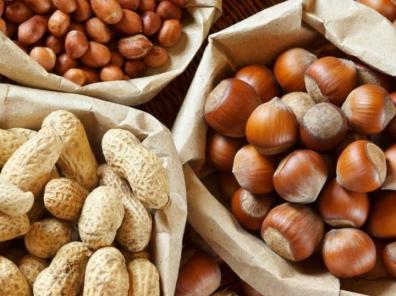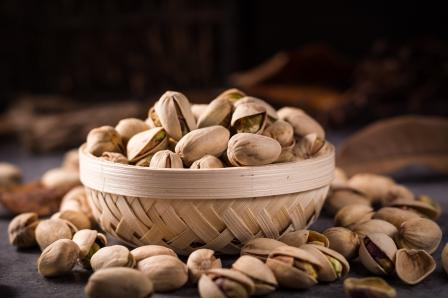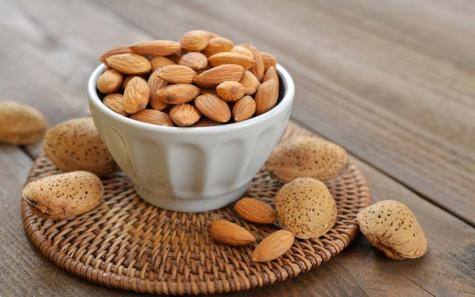When it comes to peanuts, one particular variety stands out for its exceptional flavor and quality – the Virginia Spanish peanut. This beloved nut has a rich history and a unique taste that has won over the hearts of many snack enthusiasts.
.
In this comprehensive guide, we will delve into the world of Virginia Spanish peanuts, exploring their origins, cultivation methods, nutritional benefits, and culinary uses. Get ready to discover why these small but mighty nuts have become a popular choice for nut lovers around the world. History and Origins: The story of Virginia Spanish peanuts dates back to the 19th century when they were first introduced in the United States. These peanuts are not native to Virginia but gained popularity in the region due to their exceptional flavor and quality.
..
Virginia Spanish peanuts are known for their smaller size compared to other peanut varieties, but what they lack in size, they make up for in taste. Cultivation and Growing Regions: Virginia Spanish peanuts are primarily grown in the southeastern United States, with Virginia and North Carolina being the main production regions. These peanuts thrive in sandy soils and warm climates, making them well-suited for cultivation in the region. The growing process of Virginia Spanish peanuts involves planting the seeds in well-drained soil and providing adequate water and sunlight for optimal growth. One of the key factors that contribute to the unique flavor of Virginia Spanish peanuts is the type of soil they are grown in. The sandy soils of the southeastern United States impart a distinct taste and texture to the peanuts, making them stand out from other varieties. Nutritional Benefits: In addition to their delicious taste, Virginia Spanish peanuts also offer a range of nutritional benefits. These peanuts are a good source of protein, healthy fats, fiber, and essential vitamins and minerals. They are also rich in antioxidants, which help protect the body from oxidative stress and inflammation. One ounce of Virginia Spanish peanuts provides approximately 7 grams of protein, making them a great plant-based protein option for vegetarians and vegans. They are also a good source of monounsaturated fats, which have been linked to heart health and reduced risk of chronic diseases. Culinary Uses: Virginia Spanish peanuts are incredibly versatile and can be enjoyed in a variety of ways. Whether eaten roasted, salted, or as a crunchy peanut butter, these nuts are a delicious addition to any snack or meal. Roasted Virginia Spanish peanuts can be sprinkled over salads, added to trail mixes, or simply enjoyed on their own as a satisfying snack. For those with a sweet tooth, Virginia Spanish peanuts can be coated in caramel or chocolate for a decadent treat. They can also be used in baking recipes such as cookies, cakes, and brownies to add a rich nutty flavor.
…
Health Benefits: In addition to their nutritional content, Virginia Spanish peanuts offer a number of health benefits. The monounsaturated fats found in these peanuts have been shown to lower LDL cholesterol levels and reduce the risk of heart disease. The high fiber content of Virginia Spanish peanuts also promotes digestive health and helps regulate blood sugar levels. These peanuts are also a good source of vitamins and minerals, including vitamin E, niacin, folate, and magnesium. Vitamin E is a powerful antioxidant that helps protect cells from damage, while niacin plays a role in energy production and metabolism. Virginia Spanish peanuts are also a good source of plant-based phytosterols, which have been shown to lower cholesterol levels and reduce the risk of heart disease. Including these nuts in a balanced diet can contribute to overall health and well-being. Sustainability and Environmental Impact: The cultivation of Virginia Spanish peanuts is typically done using sustainable farming practices that minimize environmental impact. Farmers in the southeastern United States often rotate crops to maintain soil health and prevent erosion. Additionally, Virginia Spanish peanuts require less water compared to other crops, making them a relatively water-efficient choice for farmers. By choosing Virginia Spanish peanuts, consumers can support sustainable agriculture practices and contribute to the preservation of the environment. These nuts are a delicious and eco-friendly choice for those looking to make a positive impact on the planet. Conclusion: Virginia Spanish peanuts are a unique and flavorful nut variety that has captured the hearts of snack enthusiasts around the world. With their rich history, nutritional benefits, and versatile culinary uses, these peanuts have become a staple in many households. Whether enjoyed on their own as a snack or incorporated into recipes for an added crunch, Virginia Spanish peanuts offer a delicious and nutritious way to satisfy your taste buds.




Your comment submitted.